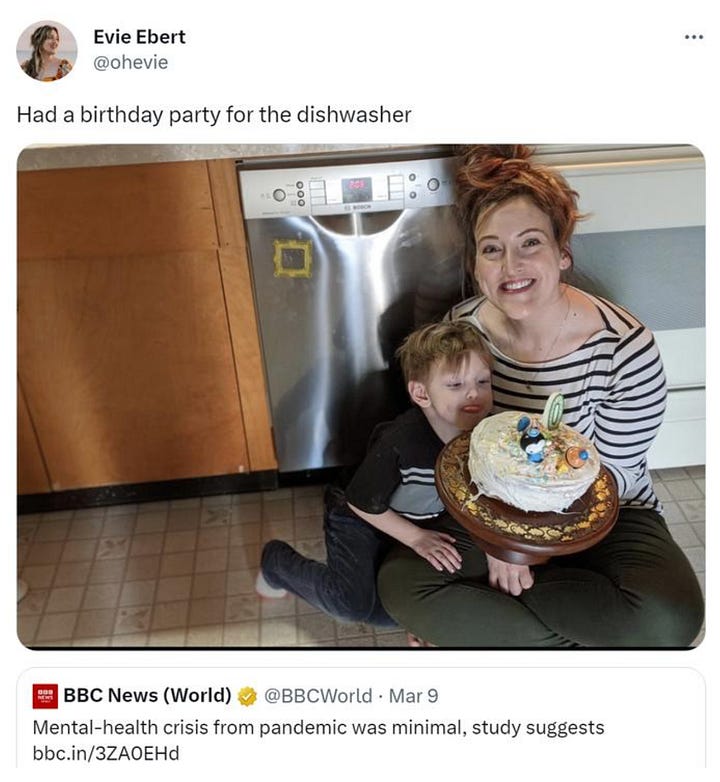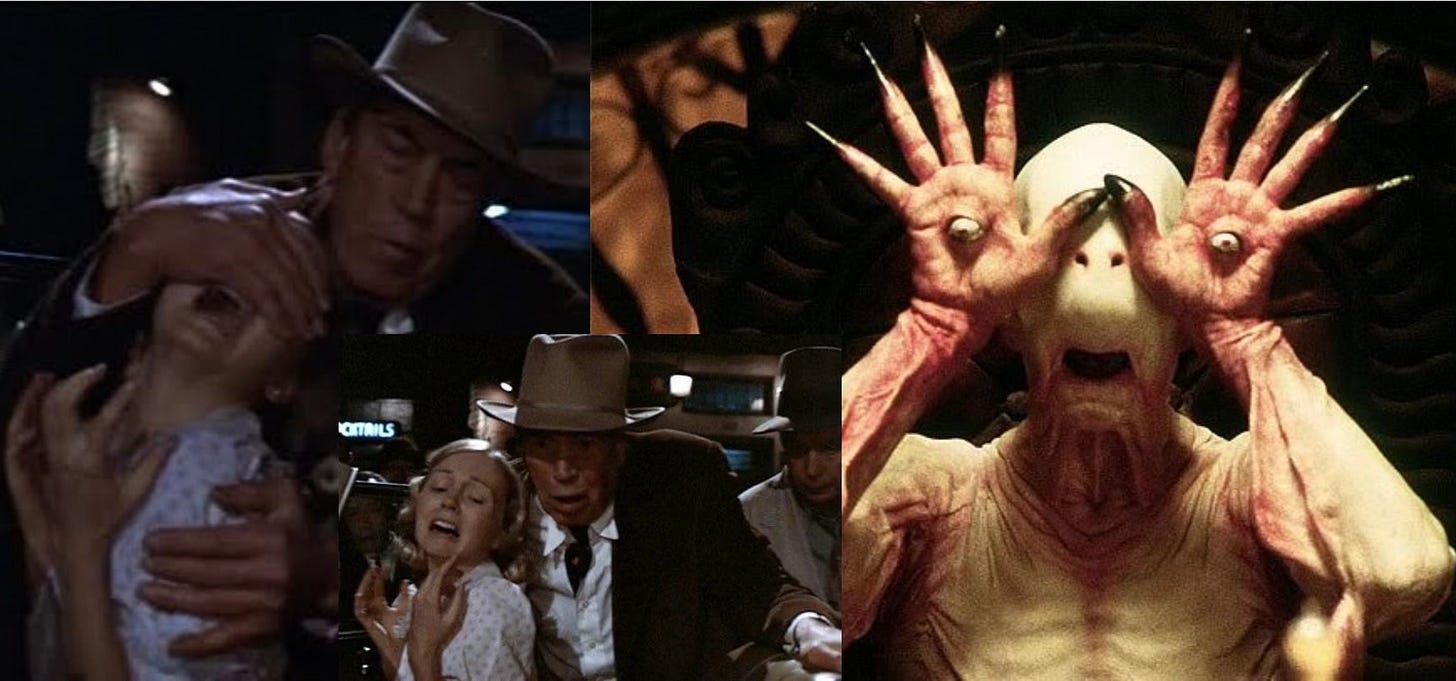I rewatched Chinatown. Not without trepidation. I mean, I’ve read Monsters. I urge you to do the same because Claire Dederer explains far better than I could why Polanski is problematic. Especially how “problematic” is not simply a euphemism for “awful”. The problem is not that he was astonishing but did something awful, it is that he still remains both astonishing and awful. The problem is that something of the awful is central to why the work is so astonishing. Typing in the sublime font Gill Sans gives no sense of commune with its creator, a man who abused both his daughters. The traumas that pulse under the surface of Polanski’s work remain both shameful and essential.
Not all problems beg solution. Sometimes you just have to let things remain unresolved, multiple, uncomfortable. Chinatown remains a masterpiece. It has aged well. True, not all of its inherent misogyny feels entirely deliberate. We are never on the side of Huston’s monstrous all consuming father whose final act of silencing, his hand flopping across his daughter’s mouth, seems now to echo in the pale man of Pan’s Labyrinth.
It is less clear how we are supposed to feel when Nicholson slaps a confession from Faye Dunaway. In a sequence after this, it feels like we are expected to laugh at the spousal abuse a minor character has inflicted. But that ending. Pow. Whether deliberate or a creative fortune, that ending leaves both Gittes and us with no hiding place. It’s a film that leaves you feeling culpable, incriminated just by watching.
I was also struck by an uncanny sense that every performance Matt Damon has ever given can be found somewhere in Jack Nicholson in Chinatown. The nonchalant charm, the lazy charisma, the bursts of outrage, even his ability to be believably aggressive yet in no way a fighter, rewatching Jack as Jake I kept seeing Matt.
To be clear this is neither complaint nor slur. Even if it were a crime, Damon gets away with it. He is such a more straightforwardly attractive man, his face uncomplicated and always entireness blameless so even had his performances been deliberate attempts at fraud, he can’t help but fail. Really it is his failure to successfully be Jack Nicholson that makes him Matt Damon.
It reminds me of hearing Paul Jones, lead singer of Manfred Mann, once say how all he’d really wanted to do was be Smokey Robinson. In their heart, in their head, openly or unconsciously all performers, all artists, take aim. A musician who hits their target perfectly is nothing more than a covers act, a bootleg Beatle. The real power comes to those who fail.
Faced with problems I often have to remind myself of an insight I found whilst editing my feature film Nina Forever. In the run up Chris and I had spent a long time cutting other people’s work, a job of solving problems, a task prone to engendering a comforting sense of superiority. “What a hurried mess this scene was, it’s lucky I’m here to make sense of it…” The first months of editing our own largest work was a humbling reunion with my own fallibility. Eventually though I saw the cruel logic poor incoherent past me had been following. Yes the edit we faced was full of problems but at least they were mainly the sort of problems you can solve in an edit. We had at least spared ourselves worse problems. We imagine the work of a director, or writer, of any artist, is the work of perfecting, of attaining a goal, solving a puzzle. More often, all you get is the ability to choose which problems to leave for later, which mistakes you live with. If that sounds bleak, just consider the alternative.
I was reminded of this when reading the ever brilliant Helen Lewis writing about the 5th anniversary of the start of the covid lockdowns. The rights and wrongs of the response to covid are deep fissures in the chasm that now runs through the heart of contemporary society. It’s no small thing for Helen to confess she now feels “the downsides of those measures were greater than I, or most liberals, acknowledged”. From the perspective of 2025 it is easy to see the decisions taken then as wrong because it is only the consequences of those decisions we must now face. But a global pandemic isn’t something you solve, it is just another instance where all you get is the choice between which problem you want to deal with later.
Which is not to disagree with Helen’s basic point. The special madness of right now sure feels like, I don’t know, five years ago we all got locked in our rooms with an apocalypse and maybe we need to talk about that.







Healing trauma like this takes time, takes compassion, takes acknowledging the trauma even exists. It also requires a confidence that it’s ok to leave the traumatic experience in the past. Whether looping, or grinding, anxiously retreading the past or being horrifically re-immersed in it - trauma keeps our thoughts returning to the same moment, the same idea again and again. Constantly we scour the past for some clue, some warning, some protection.
I’ve written before about how frustratingly inaccurate the term AI is for a technology that is neither independently intelligent nor genuinely artificial. Perhaps the only thing I find truly frightening about the ever pervasive nature of the Large Language Model is that it is, by its very nature, a form of traumatic thinking. Could there be a worst time for this technology to have arrived?
Able to near-instantly re-examine our cultural history and regurgitate something that seems like the sort of thing one of us might have said or thought, it increasingly lacks the ability to fail interestingly.
An incredible tool but one that can’t help but lock us into our past, embedding our historic biases, mimicking our past behaviours, pandering to the kinks of our search histories. If the game is to trick Alan Turing then the winning tactic is to be more, ever more, like who we have already been. If the game is to be like Jack Nicholson in Chinatown AI would do far better than Matt Damon. But it is only our failure to recreate the past we aim for that has ever kept us moving forward.
Some problems should not approached as things to solve but just as offering yet more interesting ways to fail.




